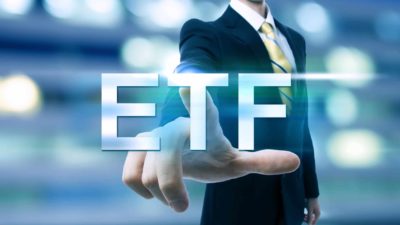ASX-listed exchange-traded funds (ETFs) can be effective investments for Aussies because of a number of characteristics.
We can gain exposure to many different geographies or investment themes, from share markets in Australia and the United States to other foreign markets, the global cybersecurity sector, the video gaming industry, and more.
Investors can mix and match ETFs in their portfolios to get the desired mix of assets. There are two factors I like the most about ASX ETFs, which I'll discuss below.
Diversification
One of the most appealing aspects of ETFs is that they can provide a strong level of diversification, even within a single fund.
Buying an ETF with a ready-made portfolio can provide instant diversification, reducing the risk of having too much allocated (in percentage terms) to a single asset or business. Many exchange-traded funds provide good diversification at the sector level as well.
In contrast, if someone bought an investment property as their first investment, all of their money would be invested in one building in one location. And buying Commonwealth Bank of Australia (ASX: CBA) shares as a first investment would mean 100% of the portfolio would be invested in one company.
Some ASX-listed ETFs, like the Vanguard MSCI Index International Shares ETF (ASX: VGS) and the Vanguard US Total Market Shares Index ETF (ASX: VTS), are invested in at least 1,000 different businesses. That's great diversification, in my opinion.
ETFs invested in hundreds (or perhaps just dozens) of businesses can also provide a very satisfactory level of diversification.
Automatically-adjusting portfolio
I think one of the most underrated positives about ASX ETFs is that their portfolios regularly change, usually when they adjust to match changes in the underlying index.
ETFs don't just represent a fixed list of businesses, it's a dynamic, changing list.
If we bought 100 different businesses and stuck with them, some may do well but others are likely to deteriorate over time. We don't want to own rubbish businesses forever until they go bust – the ETFs will eventually divest those holdings once the businesses have slipped out of the S&P/ASX 200 Index (ASX: XJO) or whichever the relevant index is.
That changing portfolio ensures ASX ETFs can remain useful investments for the ultra long-term.
Think how much the US share market has changed – a few decades ago, the biggest businesses were names like Exxon Mobil, IBM, Walmart, Coca-Cola and General Electric.
While these businesses are still large, the US share market is now weighted to businesses like Microsoft, Nvidia, Apple, Alphabet, Amazon, and Meta Platforms. For many ordinary Aussies, I think it's the adjusting portfolios that can make ASX ETFs such effective long-term investments.









